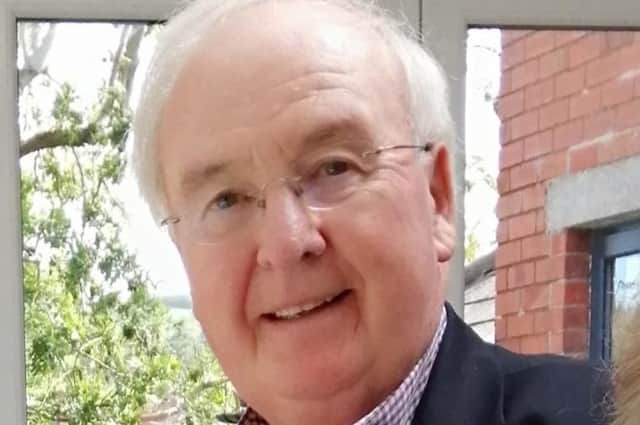Thought for the Week: The heartful cries of the innocent people in Ukraine


In my early years, I learned about the war through my father, a member of the Home Guard. I heard much about the evil Nazi dictator Adolf Hitler and his ability to manipulate German people, including large numbers of German church leaders and their congregations.
As I watch the news these days I see similarities between Hitler and the Russian dictator Vladimir Putin. Despite the horror of all of this, I also experience moments of awe and wonder when I see people opening their homes in Ukraine’s bordering countries, and here in our divided Northern Ireland community I observe unionists, nationalists and republicans united in their support for the people of Ukraine.
Advertisement
Hide AdAdvertisement
Hide AdI am deeply moved when I see Ukrainian Christians praying on the street and a group of Christians witnessing to their faith, singing the modern hymn - “When I fear my faith will fail, Christ will hold me fast; When the tempter would prevail, He will hold me fast…!”
I am also conscious also that there are Christians in Russia who are meeting under fear of persecution. If discovered evangelising, they will be heavily fined or imprisoned for up to
five years. Apparently, Putin is a member of the Russian Orthodox Church, whose leaders appear to remain silent if not complicit.
In World War Two, horrified by the evils of Hitler, a number of well-known Christian leaders in Germany formed a group called the Confessing Church. They publicly opposed Hitler, claiming their allegiance was to Christ and His teachings and these were diametrically opposed to all the Nazi regime stood for.
Advertisement
Hide AdAdvertisement
Hide AdTheir most prominent leader was Dietrich Bonhoeffer, an eminent German Lutheran pastor and leading scholar and theologian of his day. Two days after Hitler came to power in 1933, Bonhoeffer spoke out against him in a radio interview and in mid-flow was taken off the airwaves. Within a short time, he led 20 per cent of pastors to become part of the emerging Confessing Church. However, whether by fear or conviction, the majority remained relatively silent. Such was Bonhoeffer’s distress that he was involved in an unsuccessful plot to kill Hitler and, in 1944, he was convicted for conspiring against the Third Reich.
Significantly, his books ‘Letters and Papers from Prison’ and ‘The Cost of Discipleship’ remain Christian classics to this day. Our Christian brothers and sisters in Ukraine are certainly beginning to realise the cost of following Jesus.
In 1945, Bonhoeffer was brought to Flossenbürg concentration camp, where on April 9, after praying fervently for hours, he was put to death by hanging. His final words are unforgettable: “This is the end - for me, the beginning of life.” And in these terrible times that confident hope of eternal life remains for everyone whose life is centred on Jesus Christ.